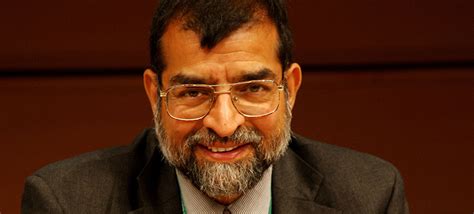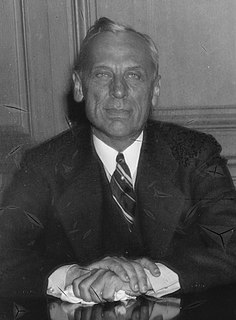A Quote by Susana Martinez
New Mexico's agricultural economy is primarily composed of dairy and range livestock production.
Quote Topics
Related Quotes
Production for sale in a market in which the object is to realize the maximum profit is the essential feature of a capitalist world-economy. In such a system production is constantly expanded as long as further production is profitable, and men constantly innovate new ways of producing things that will expand the profit margin.
As a matter of fact, capitalist economy is not and cannot be stationary. Nor is it merely expanding in a steady manner. It is incessantly being revolutionized from within by new enterprise, i.e., by the intrusion of new commodities or new methods of production or new commercial opportunities into the industrial structure as it exists at any moment.


































